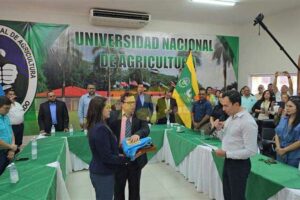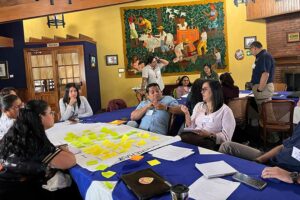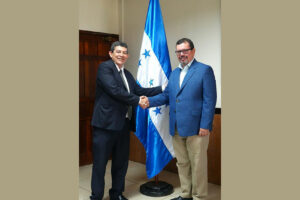Strengthening Climate Resilience in the Central American Dry Corridor
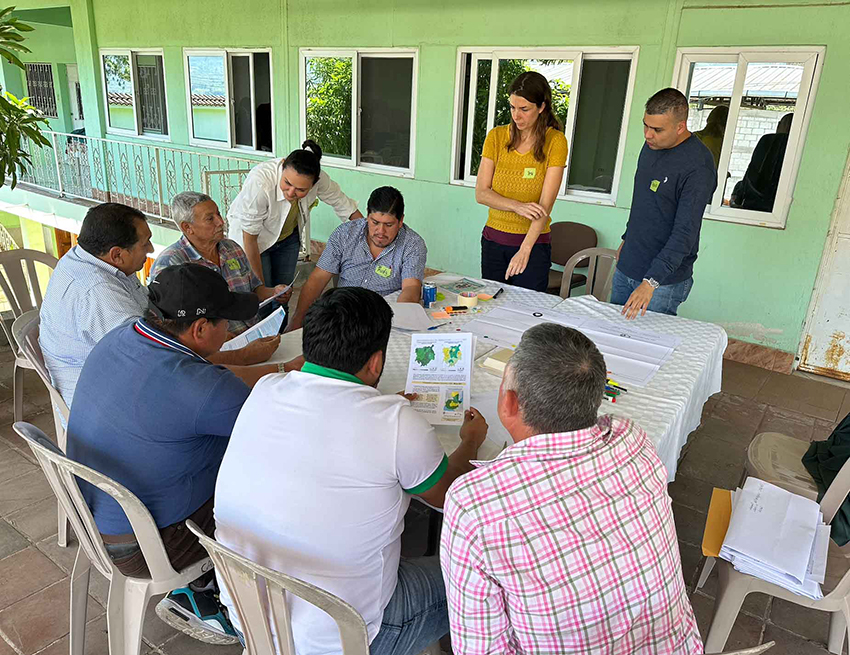
- The ESCALAR project, by CATIE, drives climate adaptation in agriculture through information and community action in El Salvador, Guatemala, and Honduras.
February 14, 2024. As part of the ESCALAR project (Scaling climate adaptation solutions for resilience and migration reduction in the Central American Dry Corridor), which is implemented by CATIE (Tropical Agricultural Research and Higher Education Center), with the support of the Swedish Cooperation, in 17 municipalities that are part of the Central American Dry Corridor of El Salvador, Guatemala, and Honduras, work is being done with the climate information component for decision-making by producer families and partner organizations of the project.
The information gathering process began in 2023 with the identification and selection of six partner organizations implementing the project from the three countries, which are the Trifinio Municipalities Association, in El Salvador; the Agricultural Producers Association of Suchitán (APAS), in Guatemala; and the “Cafetales” R.L. Integral Agricultural Cooperative (CAINCAFE R.L.), in Honduras; as well as the Güisayote Commonwealth, the Trinational Border Commonwealth of the Lempa River (MTFRL), and the Trifinio Women's Network HOSAGUA, all with trinational incidence.
The team in charge of this process conducted interviews with the aforementioned with the aim of validating climatic risks and adaptation measures implemented by producer families in the areas of coffee, basic grains, and livestock. In addition, the knowledge network was evaluated, climate products in the region were identified, and surveys were conducted that helped to characterize the typology of producer families in each productive sector.
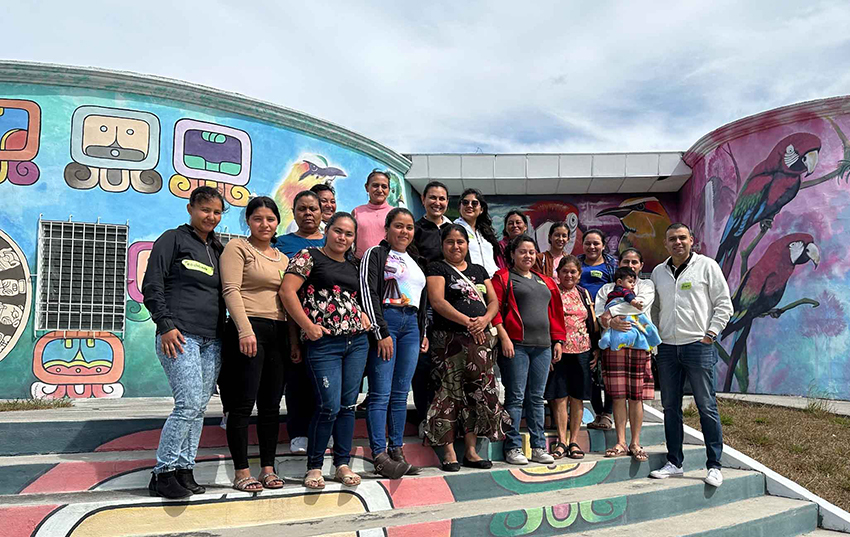
Women producers of the MTFRL, Sinuapa, Honduras.
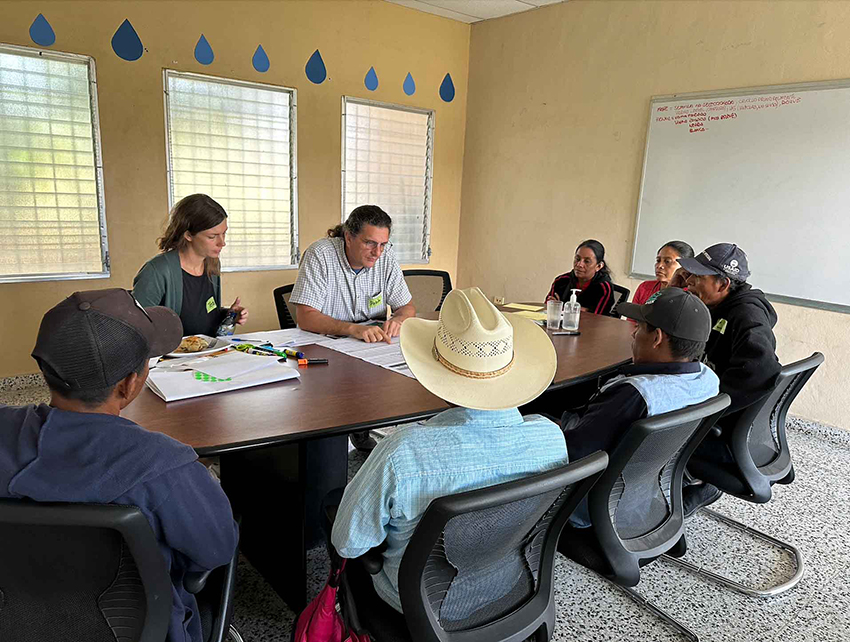
Pablo Imbach and Tea Skrinjaric, both from CATIE, along with representatives of the producer families of the MTFRL, San Juan, Esquipulas, Guatemala.
Thus, from January 29 to February 09, as a follow-up to this important process for ESCALAR and the producer families with whom work is carried out, Pablo Imbach, leader of the Climate Action Unit of CATIE, and Andrea Zamora, specialist in Adaptation and Local Development of said unit of the Center, led a series of focus groups in the three countries affected by the project, whose purpose was to collect relevant information about the demand and needs related to the use of climate information for decision-making in the value chains of basic grains, coffee, and livestock.
"The actions of ESCALAR in the theme of climate services aim to strengthen their design from the perspective of the end users, addressing communication channels, use of information for the management of agricultural systems, and the usability of climate information products," Imbach mentioned.
The focus groups were conducted with 94 people, mostly women from the region (55%), with the sector of basic grains having the highest attendance in the three countries. The development of the activities had the support of the technical staff of the six partner implementing organizations.
It is expected that the result of this process will be the proposal for the design of pilots for the access and use of climate services, suitable to the local context of the producer organizations and the institutional framework of each country.
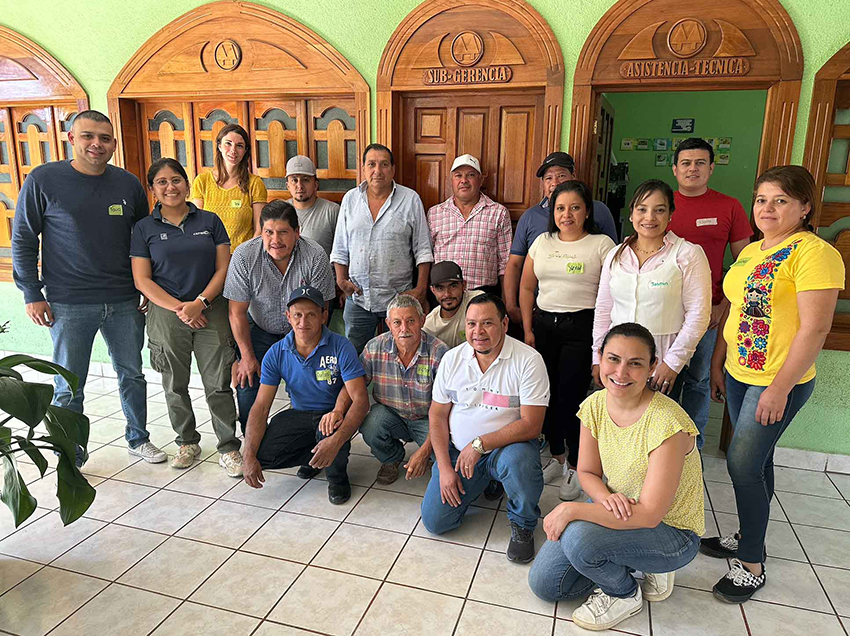
Members of the coffee producer families of CAINCAFE R.L and CATIE team, Esquipulas, Guatemala.
Zamora mentioned that one of the advantages of this process is the collection of local knowledge through technical personnel and producer families. "We collect information based on the experience of producer families regarding the climate, its impacts, and its risks, with the aim of creating timely, accessible, and effective channels for families and organizations to make decisions throughout the year for their crops, for example, when to plant, what varieties to use, when to fertilize, in short, a number of decisions based on climatic conditions to improve the living conditions of the population," concluded the specialist.
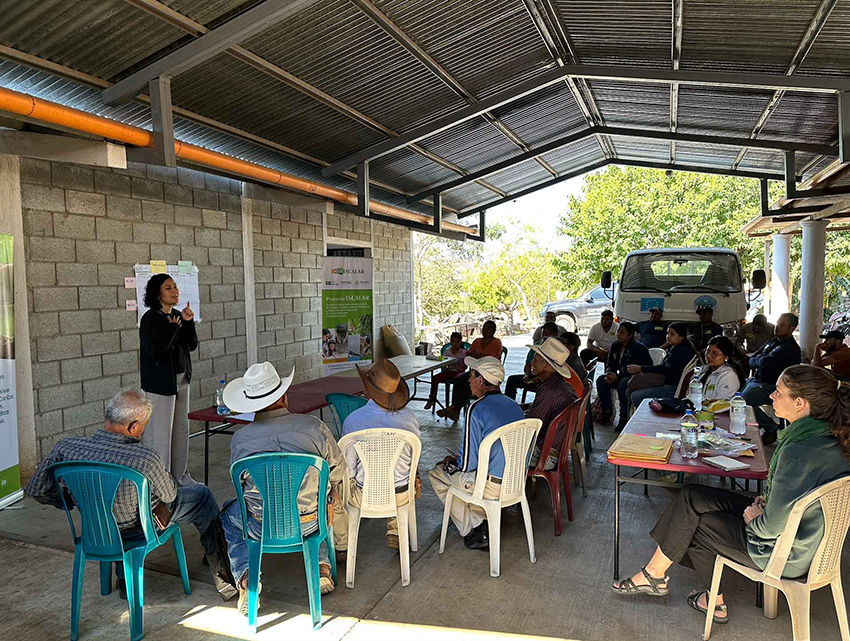
Andrea Zamora, from CATIE, and representatives of the producer families of APAS, Suchitán, Guatemala.
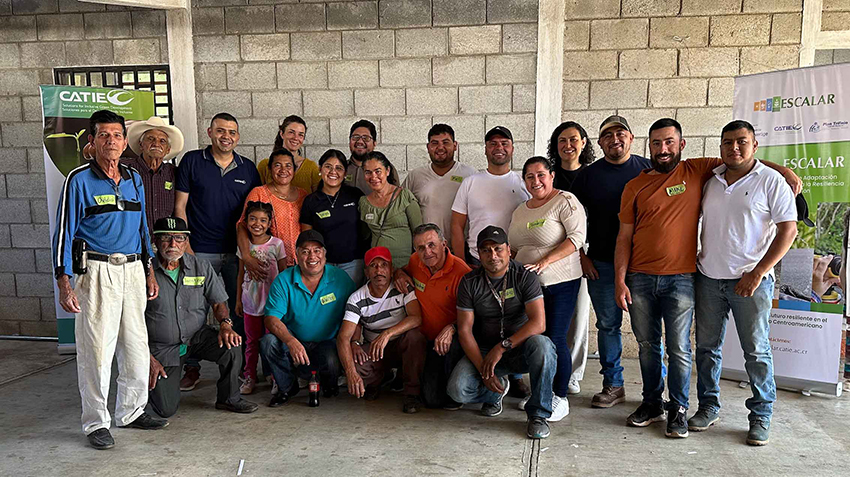
CATIE team and representatives of the producer families of APAS, Suchitán, Guatemala.
"For the ESCALAR project, it is fundamental to coordinate this initiative with the agroclimatic tables of the region, since they represent a space for dialogue among various local actors with the purpose of understanding the possible behavior of the climate in a locality and generating recommendations to mitigate the risks associated with the expected climate variability. That is why interviews were conducted with representatives of the Technical Agroclimatic Tables of Chiquimula and Jutiapa in Guatemala, the Participatory Agroclimatic Table of Ocotepeque in Honduras," concluded Favio Duarte, specialist in Adaptation Measures and Use of Climate Information of the ESCALAR project.
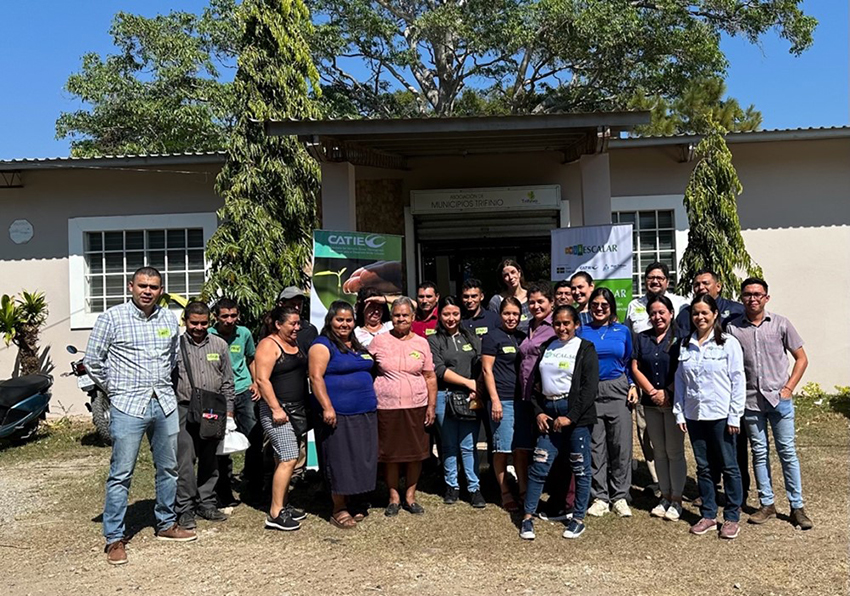
ESCALAR team and Climate Action Unit of CATIE with representatives of the producer families of the Trifinio Municipalities Association in Santa Catarina Mita, El Salvador.
More information:
Andrea Zamora
Specialist in adaptation and local development
Climate Action Unit
CATIE
azamora@catie.ac.cr
Favio Duarte
Specialist in adaptation measures and use of climate information in agriculture
ESCALAR Project
CATIE
favio.duarte@catie.ac.cr
Written by:
Donaji García
Communicator for the ESCALAR Project
Environmental Economics and Sustainable Agribusiness Unit
CATIE
donaji.garcia@catie.ac.cr

